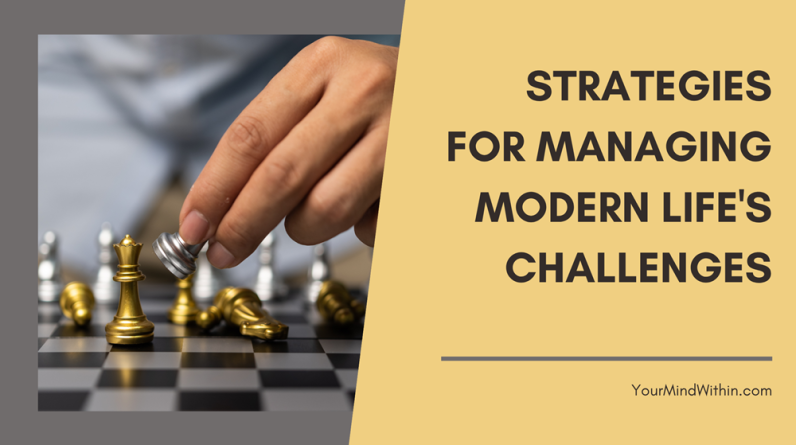
Life sometimes feels like a continuous act of juggling, trying to balance your responsibilities, tasks, and commitments every day.
Feeling overwhelmed is quite natural and touches most everyone. When your emotions or to-do list swamp you, it may seem as though it’s too much for you to handle.
This affects your emotional and mental well-being. It may make you feel like you can’t move forward, and can make you feel helpless, too.
Emotional overwhelm is your natural response to the many demands that are placed on you. It does not reflect your strength or capabilities.
Recognizing overwhelming feelings and understanding them will help you to regain your sense of balance.
Here are 6 techniques to help you find calm:
1. Practice Mindfulness
When you have what seems like millions of things happening at once, it’s a challenge to focus on the present. But your present moment is all you really have.
Tuning that moment through mindfulness is helpful in reducing anxiety about the past, as well as the future.
Some helpful ways to practice healthy mindfulness include:
Doing one job at a time instead of multitasking
Meditation
Using mindfulness apps
Using movement, like dance or yoga
2. Breathe Deeply to Reduce Anxiety or Anger
Breathing is the most effective technique for coping with emotional overwhelm. If you’re angry or anxious, you probably take shallow, quick breaths.
This causes your brain to kick into fight-or-flight mode. You should take deep, long, calming breaths that disrupt this mode and help you to calm down.
There are numerous breathing techniques that can help you to calm down. One of the most helpful is called three-part breathing.
With this method, you take in one deep breath and fully exhale while you pay attention to your body and your sense of calm.
3. Practice Self-Care
Most people do not spend nearly enough time in self-care for their body and mind. Take care of your body with exercise, eating healthy and getting enough sleep.
Do some activities that will nourish your soul and spirit, like:
Nature walks
Socializing
Hobbies
Use reflection, meditation, or prayer for connecting with your spiritual side.
4. Take Some Time to Rest
Rest is not all about sleep. Sometimes you can grab a nap to help overcome emotional overwhelm.
You can also sit silently and connect with your breathing. Turn off your cell phone, so you can spend the resting time on you.
Good sleep is an excellent combatant for stress and anxiety, too.
Allow yourself the space and time to be with all your feelings without interruption. Otherwise, it will be difficult to understand why you’re feeling the way you are.
Rest allows you to reveal negative feelings so you can heal them.
5. Do Some Relaxing Stretches
Stretching even for five to 10 minutes helps to move away blocked energy.
If you’ve received bad news, or some type of shock, your body can respond by freezing up, blocking your energy.
Try doing twisting of the trunk, rotations of your neck or hip bends and toe touching to help shift away stagnant energy so you can see things more calmly.
6. Challenge Your Negative Thoughts
Your inner voice is often your worst critic. If you notice anxious thoughts creeping in, challenge them.
Ask yourself:
Are the negative thoughts true?
Is there a way to more realistically reframe the thoughts?
What would you say to a friend who was having the same problem?
As you become accustomed to challenging negative thoughts, it will lessen the amount of power the thoughts have over you.
Conclusion
Learning to cope with emotional overwhelm is a vital part of your human experience.
When you utilize coping mechanisms and incorporate them into daily life, you’ll be better able to manage your emotions effectively and find a sense of balance even when times are challenging.
Seeking support and using effective strategies is not a sign of weakness, but of strength.
Embrace all your emotions and lean on coping strategies when you need to. This will help your journey of resilience and personal growth.
References:
https://www.calm.com/blog/emotional-stress
https://www.healthline.com/health/how-to-calm-down#tips-to-calm-down
https://psychcentral.com/stress/how-to-deal-with-feeling-overwhelmed#breathing-exercises








